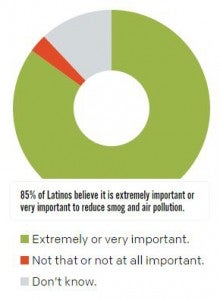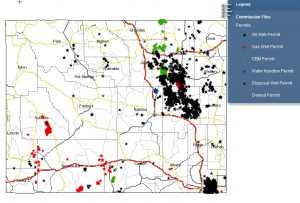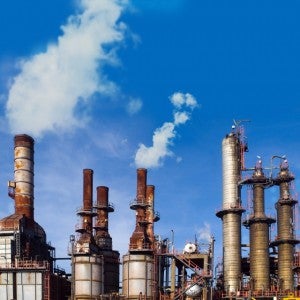 Politicians and political observers are increasing the amount of time spent trying to figure out how to engage with Latino voters – a large and growing part of the American electorate. Issues such as immigration reform usually dominate the discussion nationally, but a new poll from the national polling firm Latino Decisions shows that clean water and healthy air are also of utmost importance for Latinos.
Politicians and political observers are increasing the amount of time spent trying to figure out how to engage with Latino voters – a large and growing part of the American electorate. Issues such as immigration reform usually dominate the discussion nationally, but a new poll from the national polling firm Latino Decisions shows that clean water and healthy air are also of utmost importance for Latinos.
According to their poll 85% of those surveyed found reducing smog and air pollution to be extremely or very important, compared to 80 percent for comprehensive immigration reform.
This comes as no surprise to those of us that are rooted in this community where issues of the health of our communities and families are often top-of-mind around the dinner table. In reality, it also comes as no surprise to decision makers who have listened to our communities, and know Latinos have rich ties to the outdoors, but are too often the first and worst impacted by pollution. Read More












